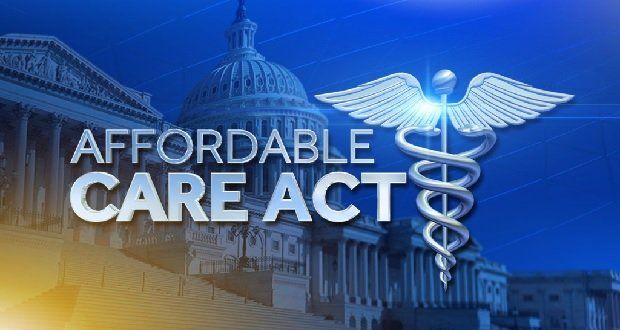Handling compliance with the Affordable Care Act
Points North • June 26, 2020
Staying HR Compliant in 2020
Once employers have familiarized themselves with the ACA obligations, they should also know of the penalties associated with non-compliance. Identifying and paying for full-time employees is fairly easy because of the straightforward details of their job but for variable hour employees’, it is not as simple. Some organizations make use of the ‘limiting’ strategy to manage such schedules but this strategy as its own set of problems. Problems such as workforce scheduling and variable labor requirements are factors that make this strategy impracticable. We’ve combined some of the best ways to ensure ACA compliance in this article and examined how ‘guidance’ can help you limit penalties.
Although the Affordable Act Care is applicable to qualifying employers in 2015, there are some members who are unable to afford insurance and can be penalized for non-compliance. To demonstrate how to minimize ACA penalty liability, we have used the example of a construction company owner.
For background, the ACA for Applicable Large Owners came into being in the year 2015. At that time, Applicable Large Owners of employers that have a full-time workforce of 100 people or more. In 2016, the threshold was reduced and an employer with at least 50 people working full-time was categorized as Applicable Large Employers. Some employers weren’t obliged to pay for insurance in 2015 qualified for it in 2016 after the threshold was revised and had to prepare accordingly.
The first step that an employer should take to ensure compliance is to manage the employee status. This will make the process to gauge which employees are eligible for insurance easier. Employers should have a time and attendance system in place apart from other calendar-based reporting requirements.
Although employers have had a number of years to understand what entails the reporting requirements of ACA, to what extent they are prepared is a question.
The 2014 ACA Study conducted the ADP Research Institute included data from over 800 HR and Benefits decision-makers in the US. The representative sample comprised of 403 HR supervisors, senior HR, and Benefits managers, executives of organizations with 50-999 employees and large organization with 1000 or more employees. How employee benefits, policies and systems are decided was studied with the resulting data’s reliability being at 95% confidence level for each category’s sample size.
Who is the key decision-maker in terms of ACA compliance?
New salary thresholds have taken effect as of January 1, 2020. Standard minimum salary levels for exempt employees (professional, administrative, and executive) have increased to $684 per week, from the current rate of $455 per week, or $35,568 annually. Additionally, the salary minimum for the highly compensated employee exemption is increasing as well, to $107,432 from the current $100,000. However, the exemption for certain computer employees who are paid hourly has remained the same, at $27.63 per hour.
Under these policies, up to 10% of these standard salary levels may be satisfied through non-discretionary bonuses and incentives, including commissions. Additionally, a special catch-up provision allows a payment of up to 10% of the minimum standard salary paid within one pay period after the 52-week period.
In order to maintain these employees' exempt status, these adjustments must be made effective January 1, 2020. HR professionals should identify impacted employees and make changes needed, keeping in mind that some states have their own salary thresholds that may be higher than the federal policies, and may apply different tests for these employees.
Salary History Bans
The key decision-maker of ACA compliance strategy is the Chief Executive Officer of the company. In 60% of the large employers, however, the decision is in the hands of the head of Human Resources. In short, solving ACA related challenges seems to be a team-effort and in most mid and large sized organization, people from various departments take part in ensuring ACA compliance.
Which employees are receiving healthcare coverage?
Most organizations are choosing to not limit the employee hours as per the service-hour requirements but also going beyond ACA full-time populations in terms of healthcare coverage.
These decisions are driven by the need to attract talent, some of the organizations are choosing to extend healthcare coverage to even those employees who don’t qualify as full-time. A quarter of midsized organizations are planning to limit the hours of some of its workforce in order to manage the ACA requirements.
Shifting Healthcare Costs to Employees
Employers are seen shifting the healthcare costs to their workforce as per the ADP RI study. 80% of the large organizations and 70% of midsized organizations have included the health care cost in the form of co-pays and similar deductions. The study also found that consumerism is being included in the health care cost through revised plan design. Consumerism exists in the form of Consumer-Driven Health Plans (CDHPs) and is meant to assist the employees in their health care buying decision.
Some employers have also introduced a low minimum value plan to comply with the ACA requirements. Having a CDHP with a 60% minimum value is going to streamline record-keeping and its reporting. It can also be helpful in minimizing the Excise Tax penalties. This penalty refers to a 40% tax which took effect in 2018 on health plans above a threshold. These health plans fall into the high-cost category of coverage. \
Addressing Affordability Requirements of the ACA
Affordability is one of the many challenges that employers face under the ACA requirements. According to the study, a considerable number of employers who cover healthcare benefits or are planning to do so in future are unsure about the affordability safe harbors they should be using for their workforce.
To address this concern, at least one plan offered to the employees should have a minimum of 60% value based on the employee cost of self-coverage.
How Employers Prepare for ACA Compliance
ACA compliance is an area of concern for most employers as per the ADP RI study. The ACA requirements are something that employers feel that they are not fully prepared to deal with. A primary reason behind this is the inability of organizations to gather timely and accurate data. It also stems from not having a system in place that can integrate information of employees such as payroll, benefits, time, and labor management. This information is important if you want to ensure ACA compliance.
Some employers do have access to all the data mentioned but aren’t confident about the accuracy of the information they have. Compiling and reporting are important components of healthcare-related information required by the Internal Revenue Service. The employers are also supposed to provide required notices to their workers, timely.
Although the information required for ACA compliance is detailed, the employers don’t need to put a load on their internal workforce and systems to gather and organize the data. There are a number of third-party organizations that employers can take onboard to do the job. These organizations are well versed in providing comprehensive ACA solutions such as certified expertise and dedicated service components.
Regardless of how an employer chooses to prepare for ACA reporting, it has to be done whether they do it on their own or involve a third-party.

The new year brings new policies and regulations, so it's important to do a comprehensive review and update of your legal and HR compliance to make sure that you're on top of any new laws and regulations. Begin 2020 on the right foot, with the knowledge you'll need to answer any questions from corporate leadership, supervisors, and employees. Here's what you need to know.

As the fiscal year closes the employers have many queries regarding the status of the Affordable Care Act (ACA) Reporting. It is questioned every time the tax filing season looms. The answer to all these queries is that Yes! ACA is still the law and employers who tend to ignore their obligations towards ACA reporting can face some heavy penalties.

It is important to choose a reliable and secure data aggregation solution which provides you with the best data. If you manage to get financial data which is cleaned and enriched then you can make accurate assessments of the financial situation of your customers. Following are some of the things which you should look for while choosing a solution to data aggregation.

Due to the complexity of the process, utilizing a reputable software vendor to file your 1094/1095 data electronically with the IRS is considered to be a best practice. One reason for this is that if it turns out that there’s a problem with some of your ACA data, the IRS doesn’t necessarily make it easy to figure out what went wrong.

The past few years have brought forth a great deal of uncertainty surrounding the Affordable Care Act. The topic of ‘repeal and replace’ was front and center during the 2016 presidential and congressional elections, and 2017 saw several attempts at repeal, none of which were ultimately successfully at scrapping the law in its entirety.






